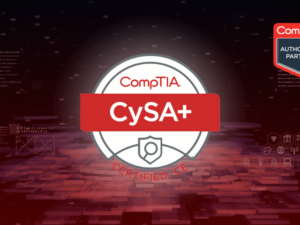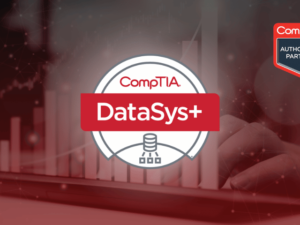Certified Threat Intelligence Analyst (CTIA)
- Description
- Reviews

CERTIFIED THREAT INTELLIGENCE ANALYST (CTIA)
COURSE DESCRIPTION
Certified Threat Intelligence Analyst (CTIA) is combination of cybersecurity and threat intelligence to help identify and mitigate business risks by converting unknown internal and external threats into known threats. It is a comprehensive, specialist-level program that teaches a structured approach for building effective threat intelligence.
TARGET AUDIENCE
This course is perfect for:
- Ethical Hackers
- Security Practitioners, Engineers, Analysts, Specialist, Architects, Managers
- Threat Intelligence Analysts, Associates, Researchers, Consultants
- Threat Hunters
- SOC Professionals
- Digital Forensic and Malware Analysts
- Incident Response Team Members
- Any mid-level to high-level cybersecurity professionals with a minimum of 3-5 years of experience.
- Individuals from the information security profession and who want to enrich their skills and knowledge in the field of cyber threat intelligence.
- Individuals interested in preventing cyber threats
COURSE OBJECTIVES
-
Key issues plaguing the information security world
-
Various types of cyber threats, threat actors and their motives, goals, and objectives of cybersecurity attacks
-
Fundamentals of threat intelligence (including threat intelligence types, lifecycle, strategy, capabilities, maturity model, frameworks, etc.)
-
Importance of threat intelligence in risk management, SIEM, and incident response
-
Cyber kill chain methodology, Advanced Persistent Threat (APT) lifecycle, Tactics, Techniques, and Procedures (TTPs), Indicators of Compromise (IoCs), and pyramid of pain
-
Various steps involved in planning a threat intelligence program (Requirements, Planning, Direction, and Review)
-
Different types of data feeds, sources, and data collection method
-
Threat intelligence data collection and acquisition through Open
-
Source Intelligence (OSINT), Human Intelligence (HUMINT), Cyber Counterintelligence (CCI), Indicators of Compromise (IoCs), and malware analysis
-
Bulk data collection and management (data processing, structuring, normalization, sampling, storing, and visualization)
-
Different data analysis types and techniques including statistical Data Analysis, Analysis of Competing Hypotheses (ACH), Structured Analysis of Competing Hypotheses (SACH), etc.)
-
Complete threat analysis process which includes threat modeling, fine-tuning, evaluation, runbook, and knowledge base creation
-
Different data analysis, threat modeling, and threat intelligence tools
-
Threat intelligence dissemination and sharing protocol including dissemination preferences, intelligence collaboration, sharing rules and models, TI exchange types and architectures, participating in sharing relationships, standards, and formats for sharing threat intelligence
-
Creating effective threat intelligence reports
-
Different threat intelligence sharing platforms, acts, and regulations for sharing strategic, tactical, operational, and technical intelligence
RECOMMENDED EXPERIENCE
- At least 3 years of working experience in information security or software design
COURSE OUTLINE
- Module 01: Introduction to Threat Intelligence
- Module 02: Cyber Threats and Kill Chain Methodology
- Module 03: Requirements, Planning, Direction, and Review
- Module 04: Data Collection and Processing
- Module 05: Data Analysis
- Module 06: Intelligence Reporting and Dissemination
Please contact us for the full course outline, schedules and for booking a private class.
Request a Quote
Popular Courses
Archive
Working hours
| Monday | 9:00 am - 6.00 pm |
| Tuesday | 9:00 am - 6.00 pm |
| Wednesday | 9:00 am - 6.00 pm |
| Thursday | 9:00 am - 6.00 pm |
| Friday | 9:00 am - 6.00 pm |
| Saturday | Closed |
| Sunday | Closed |










